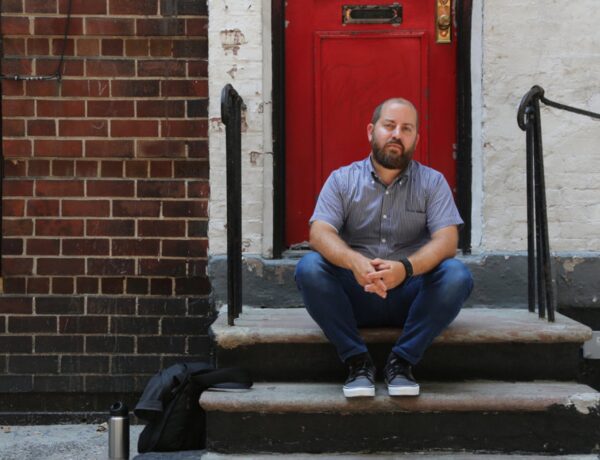Malachi Black, an accomplished poet and educator, is the author of the forthcoming collection Indirect Light, and Storm Toward Morning, a finalist for the Poetry Society of America’s Norma Farber First Book Award and a selection for the New American Poets Series. He has also published two limited-edition chapbooks, Quarantine and Echolocation.
His poems have graced the pages of various prestigious journals and anthologies, including the Academy of American Poets’ Poem-a-Day series, AGNI, The American Poetry Review, The Baffler, The Believer, Boston Review, Harvard Review, The Iowa Review, The Los Angeles Review of Books, Narrative, The Paris Review, Ploughshares, Poetry, and A House Called Tomorrow: Fifty Years of Poetry, among others.
Looking for inspiration to help you achieve your writing goals? Subscribe to our newsletter for exclusive insights into the routines, habits, and techniques of some of the most celebrated authors in history.
Hi Malachi, welcome to Famous Writing Routines, great to have you here with us today! Congratulations on your upcoming book, Indirect Light, which is set to be published by Four Way Books in 2024. Can you tell us a little bit about what readers can expect from this collection of poetry?
It’s my pleasure; thank you for having me! With respect to Indirect Light, I find it a challenge to describe any of my own collections as a totality—I’m not a project-oriented poet, so my pages are almost entirely loose-leaf, so to speak, and they stack up slowly—but, I can say that the book is something of a broken ode to growing up, as I did, in New York City’s opioid-era suburbs. Among other things, the poems endeavor to memorialize the friends I’ve lost to addiction and related forms of self-destruction while engaging with the unease of having survived what others did not.
The poems in Storm Toward Morning explore a wide range of human experiences, from sickness and isolation to wonder and spiritual yearning. How do you approach writing about such varied subject matter, and how do you strive to capture the full spectrum of human emotion in your work?
Engraved on Frank O’Hara’s tombstone is a line from his poem “In Memory of My Feelings”: “Grace to be born and live as variously as possible.” This is both declaration and invitation, and it captures an attitude toward life—and writing—to which I fully aspire. I experience each poem as an agent of its own will, and I believe my task, as a poet, is to enable each text’s individuation. I try to maintain a similar attitude toward the breadth of human experience, attending to the vivid specificity of each astonishing occasion. In writing, I also resist, perhaps too doggedly, the convenience of repeating myself, and one effect of that resistance is variation.
In the collection, you incorporate both traditional and new techniques, such as pattern and repetition, to create a distinctive voice and vision. How do you balance honoring the traditions of poetry while also creating something new and fresh?
A large part of what excites me about the work of writing is following an impulse of the language past absolute intention and into the unforeseen. My experience of writing is very much in line with May Swenson’s (a woefully underappreciated poet): “Often, when I want to write a poem, I cannot—or, if I stubbornly sit down and write something anyway, I discover sooner or later that it is not a poem…. It does not breathe.”
Dean Young draws a critical distinction between intention and attention, reminding us that it’s the latter that matters. He’s right: there is no more deadening a force in all of poetry than certainty. It seems to me that the real engine of poetry is not ego but discovery, not foreknowledge but a tugging on the skein of half-knowledge, the courting of surprise over the comforts of staunch strategy. It’s in this way that a poem can exceed us—can be smarter, wiser, wittier, and more supple than we are.
Even so, one can structure or invite surprise, and each of the three masters to which my poems are typically drawn—sound, sense, and shape—can scaffold the process of discovery. Coleridge distinguishes between “mechanical” and “organic” form, form impressed (from without) as opposed to form expressed (from within). I think it’s the second for which we must always strive—to learn, through the exercise of discernment, just what a given poem is and what it requires of us in order to ripple with its fullest life. Sometimes we find that it’s a sestina, sometimes hexameter, sometimes something utterly nonce.
I think the reason we as a literary community return to certain forms—the villanelle, the pantoum, the sonnet, etc.—is that they conform to defining (or: resonant) elements of our experience. A villanelle is a ritual; an event or action repeated in time. I live a villanelle when I brush my teeth each morning, when I grind my coffee, when I drive to work. I live a sonnet when I change my mind, alter course, or open a door—so much of life swings on a hinge. And so on. Form is a way of understanding experience, a way, you might say, of learning the organization of experience. In working to find new uses for old materials, we enlarge the past and the present simultaneously.
Discover the daily writing habits of authors like Stephen King, Neil Gaiman, and Gillian Flynn with Famous Writing Routines Vol. 1 and learn how to take your writing to the next level. Grab your copy today!
Your writing has been described as lush, daring, and formally exacting. How do you strive to balance precision and experimentation in your work, and do you feel that this balance is essential to the success of your poetry?
I’ve already touched on some of this, but I have a zany if real belief that each poem has an ideal form, and that a part of our work as poets is to discern and bring to term the dimensions intrinsic to a given impetus. Louis Kahn, an architect I very deeply admire, draws a distinction between “form” and “design”—it’s a dichotomy not entirely unlike Coleridge’s, but, in Kahn’s conception, “form” is sort of the pure ghost of a space or structure, whereas “design” is what of that structure can be realized within the world and its contingencies.
I find form at different times for different poems. But, always, I try to listen to what’s being said, and how it’s being said (it lives out loud—poems are songs for the speaking voice, or so I believe), and then I try to channel its search for being into my own search for a space that corresponds to its objectives. It’s a challenge, certainly, but also a great deal of the absorbing fun—not unlike devising a crossword puzzle with the answers to which you don’t know and then solving it.
A lot of my poems begin by groping for form, and perhaps it’s fair to say that in some cases they are stabilized more by the realization of form than by any form of realization. It might be that their resolution is their body, and vice versa—that they begin by groping for form and end by grasping it. Form is a part of the experiment, and, yes, I think the tension between confinement and improvisation has been one of the animating forces in my work.
You’ve had the opportunity to have your work featured in a variety of journals and anthologies, including The Paris Review and Poetry. How do you approach submitting your work, and what advice do you have for aspiring poets looking to get their work published?
Publication is the afterlife of poetry. Among the lines I keep above my desk is this from Heaney’s “Station Island”: “The main thing is to write / for the joy of it.” The deepest rewards of a life in poetry are in the poetry itself, and my most pressing concern is always what remains unfinished on my desk. With that said, I try to have something “in the mail” at all times; that’s the only trick there is. By way of advice to those just beginning to send out work, I’d recommend an irreverent posture: send your best poems to what you consider to be the best places. There’s nothing to be lost by being turned away.
Can you tell us about your writing routine? What does a typical day look like for you?
It has varied over the years, but, these days, my alarm goes off at 6:20. I make some coffee, say goodbye to my wife, and then spend at least an hour at the desk—and more, if I can have it. My only goal is to make a contribution. Whether that entails a phrase, one or several fresh lines, sound revisions, or any number of errors leading the way to new work will depend on the day. I’m lucky to be a college professor, which provides for more than average writing opportunities, but I work slowly, and I’ve learned that I have to approach my writing with the same sort of commitment that one would give to physical fitness or to spiritual practice.
You’ve received numerous fellowships and awards throughout your career. How do these accolades impact your creative process, and do you feel any pressure to live up to certain expectations?
Such acknowledgments have certainly helped to fortify my confidence, and they have also sustained me in a pragmatic sense by providing time, means, and space. Even so, beyond affirming the intuition that informs my aesthetic choices, they’ve had no real bearing on my creative process as such. In fact, I think there’s a great danger in deferring to or depending on external validation for one’s sense of creative worth. Writing—or writing well—requires vulnerability, and failure, rejection, and frustration will abound with or without accolades. The only expectations I strive to live up to are my own: to write better than I have before, and to write in a way that acknowledges the many masterpieces that predate me.
If you could have a conversation with any poet throughout history about their writing routine and creative process, who would that person be?
Shakespeare.
I’d love to know about the books you’re reading at the moment. What have been some of your favorite recent reads?
One of my standbys is the Roman Egyptian philosopher Plotinus, and his Enneads are always close at hand. James Hannaham’s novel Didn’t Nobody Give a Shit What Happened to Carlotta made a big impression on me recently, as did Annie Dillard’s Teaching a Stone to Talk.
What does your current writing workspace look like?
I work at home at a standing desk in a small converted bedroom. It’s cluttered but comfortable. I prefer large hardbound journals—ruled, A4 or above—for handwritten drafts and for print-outs of pieces in progress, which I cut and Scotch-tape in at intervals. Most of my poems move back and forth between keyboard and hand.
Affiliate disclaimer: Some links on this website are affiliate links. We may earn a small commission if you make a purchase through these links, but only promote products we truly believe in. We disclose affiliate links and give honest reviews.



No Comments